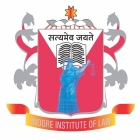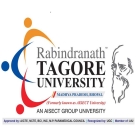Top L.L.B Colleges in Madhya Pradesh
Punjab has a total of over 35 colleges offering law education, inculcating government and private institutions. Amongst these , 31 are privately owned and 4 are government-operated. Best LLB colleges in Punjab like GNDU Amritsar and Punjabi University Patiala cater to diverse student demographics, supporting co-educational environments. Mentioned colleges offer full-time law programs aimed at fulfilling professional and academic ambitions, spotlighting Punjab as a hub for legal education.
The 3-year LLB program in Punjab is ideal for graduates who wish to specialize in the field of law. This program blends theoretical knowledge with practical insights, allowing students to pursue a career in judiciary, legal consulting, or corporate law.
Best LLB Colleges in Punjab (Based on NIRF Ranking)
NIRF (National Institutional Ranking Framework) evaluates colleges based on teaching, learning, resources, and that's only the tip of the iceberg. Below is a table listing best LLB colleges in Punjab with their NIRF rankings:
College Name | NIRF Ranking |
19 |
Best LLB Colleges in Punjab (Based on Careers360 Ranking)
Careers360 Ranking offers insights into the academic and infrastructural quality of colleges. Following is a table highlighting the best LLB colleges in Punjab with their Careers360 Rankings:
College Name | Careers360 Ranking |
Lovely Professional University, Phagwara | 63 |
80 |
Best LLB Colleges in Punjab: Fee Details
The fee range for LLB programs in Punjab varies significantly between private and government colleges. Private colleges generally have higher fees compared to government institutions. Below are detailed tables for private and government colleges.
Best Private LLB Colleges in Punjab
Private colleges in Punjab include Lovely Professional University, Chandigarh Law College, and Amity University. All these colleges offer comprehensive LLB programs with modern infrastructure and diverse career opportunities. They emphasize practical exposure, academic excellence, and professional grooming but charge relatively higher fees.
College Name | Fees |
Lovely Professional University, Phagwara | ₹4.80 Lakhs |
₹3.60 Lakhs | |
₹3.26 Lakhs | |
₹5.29 Lakhs | |
₹2.65 Lakhs |
Best Government LLB Colleges in Punjab
Government colleges like Guru Nanak Dev University, Punjabi University, and Panjab University SSG Regional Centre are also famous for the low-cost quality legal education they offer. Such colleges focus more on academic rigour and also offer considerable support for judiciary and public-sector career aspirations.
College Name | Fees |
Guru Nanak Dev University, Amritsar | ₹1.12 Lakhs |
₹1.05 Lakhs | |
N/A |
Eligibility criteria for Admissions to the best LLB Colleges in Punjab
The eligibility criteria for admissions to the best LLB colleges in Punjab inculcates academic qualifications, entrance exams, and other specific requirements. Here are the details:
Academic Qualifications: Applicants must hold a bachelor’s degree in any discipline with an aggregate of 45-50% marks (which possibly varies with the college and category). For SC/ST candidates, the relaxed percentage is generally by 5%.
Entrance Exams: Admission to the best L.L.B. colleges in Punjab may require performance in national-level exams like CLAT or university-specific exams such as PU CET or LPU NEST.
Additional Requirements: In some colleges, emphasized participation in group discussions or personal interviews is a prerequisite of the admission process. Furthermore, the applicant should strictly not have any criminal records and must meet the age limit criteria (if exists).
Popular Entrance Exams for Best LLB Colleges in Punjab
Several entrance exams are recognized for admissions to the best LLB colleges in Punjab. These exams evaluate students based on their knowledge and aptitude for pursuing law. These exams also provide insights into a candidate’s readiness for a legal career while offering scholarships in certain cases. Below are key exams:
CLAT (Common Law Admission Test): Conducted by the Consortium of National Law Universities, it tests subjects like legal aptitude, general knowledge, and logical reasoning. The syllabus includes topics such as contract law and constitutional law.
LPU NEST (Lovely Professional University National Entrance and Scholarship Test): Organized by Lovely Professional University, this test assesses logical reasoning and general awareness, specifically tailored for admissions into LPU's law programs.
PU CET (Panjab University Common Entrance Test): This university-specific exam includes sections on current affairs and basic legal concepts.
Best LLB Colleges in Punjab: Admissions Process
The admission process for the best LLB colleges in Punjab typically involves fulfilling eligibility requirements, appearing for entrance exams, and completing counseling or application procedures. The steps may vary depending on whether the college is government-run or private. Below is a table summarizing the admission process for the top colleges in Punjab:
College Name | Admissions Process |
Based on LPU NEST scores followed by counseling and document verification. | |
Admission through academic merit and PU CET (if applicable), followed by counseling. | |
Admission through direct application based on merit; group discussions or interviews may be required. | |
Merit-based selection after application submission and verification of documents. | |
Admission through direct application process based on academic performance. |
FAQs
Here are some commonly asked questions regarding the best LLB colleges in Punjab:
What are the top LLB colleges in Punjab?
The top LLB colleges in Punjab include Lovely Professional University, Guru Nanak Dev University, Punjabi University, and Chandigarh Law College.What is the fee range for LLB programs in Punjab?
Fees range from approximately ₹1.05 lakhs in government colleges like Punjabi University to ₹5.29 lakhs in private institutions like Amity University, Mohali.Which entrance exams are accepted by LLB colleges in Punjab?
Most colleges accept exams like CLAT, LPU NEST, and PU CET for admissions to their LLB programs.Is there a provision for scholarships in LLB colleges in Punjab?
Yes, several colleges offer scholarships based on entrance exam scores, academic merit, or specific eligibility criteria like economic background or category reservations.
5. What are the career opportunities after completing an LLB in Punjab?
Graduates can pursue careers in legal practice, judiciary, corporate law, legal advisory roles, and academics. Judicial services and private practice are prominent career paths.
Amity Law School, Gwalior
Ownership:
Gwalior, Madhya Pradesh
Amity Law School, Gwalior
Ownership:
Gwalior, Madhya Pradesh
Careers360
: 90Careers360
: 90- Fees : ₹1.74 Lakhs
- L.L.B (1 Course)
- Ph.D (2 Courses)
IIL Indore - Indore Institute of Law, Indore
Careers360
: 95- Fees : ₹1.37 Lakhs
- L.L.B (1 Course)
- B.B.A. L.L.B (2 Courses)
JLU School of Law, Bhopal
Careers360
: AAA+- Exams: CLAT
- Fees : ₹2.70 Lakhs
- L.L.B (1 Course)
- L.L.M (3 Courses)
Rabindranath Tagore University, Raisen
Careers360
: AAA- Exams: AJEE
- Fees : ₹90 K
- L.L.B (1 Course)
- Diploma (3 Courses)
Bhabha University, Bhopal
Chameli Devi Institute of Law, Indore
Ownership:
Indore, Madhya Pradesh
Chameli Devi Institute of Law, Indore
Ownership:
Indore, Madhya Pradesh
Careers360
: AA+Careers360
: AA+College of Law, IPS Academy, Indore
Ownership:
Indore, Madhya Pradesh
College of Law, IPS Academy, Indore
Ownership:
Indore, Madhya Pradesh
Careers360
: AA+Careers360
: AA+Faculty of Law, Mansarovar Global University, Sehore
Ownership:
Sehore, Madhya Pradesh
Faculty of Law, Mansarovar Global University, Sehore
Ownership:
Sehore, Madhya Pradesh
Careers360
: AA+Careers360
: AA+Gwalior Law College, Gwalior
Ownership:
Gwalior, Madhya Pradesh
Gwalior Law College, Gwalior
Ownership:
Gwalior, Madhya Pradesh
Careers360
: AA+Careers360
: AA+Hitkarini Law College, Jabalpur
Careers360
: AA+Indore Christian College, Indore
Careers360
: AA+Madhav Vidhi Mahavidyalaya, Gwalior
Careers360
: AA+SAGE University, Indore
Sri Guru Tegh Bahadur Khalsa College, Jabalpur
Careers360
: AA+Sri Sathya Sai College For Women, Bhopal
Careers360
: AA+- Fees : ₹97.50 K
- L.L.B (1 Course)
- B.A. L.L.B (1 Course)
Abhyuday University, Khargone
Ownership:
Khargone, Madhya Pradesh
Abhyuday University, Khargone
Ownership:
Khargone, Madhya Pradesh
- Fees : ₹90 K
- L.L.B (1 Course)
- B.A. L.L.B (1 Course)
AKS University, Satna
- Fees : ₹1.55 Lakhs
- L.L.B (1 Course)
- B.Com.L.L.B (1 Course)
Bhopal Degree College of Law, Bhopal
Ownership:
Bhopal, Madhya Pradesh
Bhopal Degree College of Law, Bhopal
Ownership:
Bhopal, Madhya Pradesh
- Fees : ₹85 K
- L.L.B (1 Course)
- B.A. L.L.B (1 Course)
Career College of Law, Bhopal
Chaudhary Dilip Singh Law College, Bhind
Ownership:
Bhind, Madhya Pradesh
Chaudhary Dilip Singh Law College, Bhind
Ownership:
Bhind, Madhya Pradesh
College of Professional Studies, Indore
Ownership:
Indore, Madhya Pradesh
College of Professional Studies, Indore
Ownership:
Indore, Madhya Pradesh
Department of Post Graduate Legal Studies, People's University, Bhopal
Ownership:
Bhopal, Madhya Pradesh
Department of Post Graduate Legal Studies, People's University, Bhopal
Ownership:
Bhopal, Madhya Pradesh
DHSGSU Sagar - Dr Harisingh Gour Vishwavidyalaya, Sagar
Dr Preeti Global University, Shivpuri
Ownership:
Shivpuri, Madhya Pradesh
Dr Preeti Global University, Shivpuri
Ownership:
Shivpuri, Madhya Pradesh
- Fees : ₹97 K
- L.L.B (1 Course)
- B.A. L.L.B (1 Course)
GHRU Saikheda - GH Raisoni University, Chhindwara
Government Jatashankar Trivedi College, Balaghat
Government Jawaharlal Nehru Smrati College, Shujalpur
Government Narmada PG College, Hoshangabad
Government Nehru Degree College, Ashoknagar
Government New Law College, Indore
Ownership:
Indore, Madhya Pradesh
Government New Law College, Indore
Ownership:
Indore, Madhya Pradesh
Government PG Autonomous College, Datia
Government PG College, Biaora
Government PG College, Pipariya
Government Post Graduate College, Narsinghpur
Ownership:
Narsinghpur, Madhya Pradesh
Government Post Graduate College, Narsinghpur
Ownership:
Narsinghpur, Madhya Pradesh
Government Shahid Kedarnath PG College, Mauganj
Ownership:
Mauganj, Madhya Pradesh
Government Shahid Kedarnath PG College, Mauganj
Ownership:
Mauganj, Madhya Pradesh
Gyan Mandir Law College, Neemuch
Hari Singh Ruprah Arts Commerce and Law College, Jabalpur
Ownership:
Jabalpur, Madhya Pradesh
Hari Singh Ruprah Arts Commerce and Law College, Jabalpur
Ownership:
Jabalpur, Madhya Pradesh
- Fees : ₹61.44 K
- L.L.B (1 Course)
- B.A. L.L.B (1 Course)
Indore International College, Indore
IMI Indore - Indore Management Institute and Research Center, Indore
Jawahar Lal Nehru Smriti Government Post Graduate College, Shajapur
JK College of Law, Chhatarpur
Ownership:
Chhatarpur, Madhya Pradesh
JK College of Law, Chhatarpur
Ownership:
Chhatarpur, Madhya Pradesh




